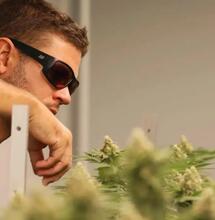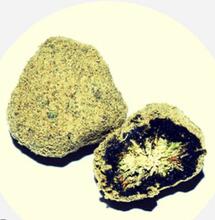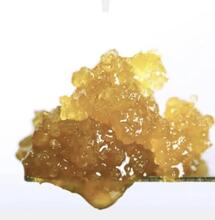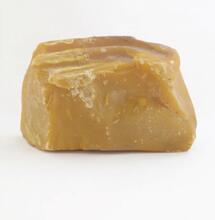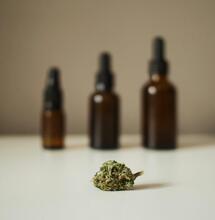Cannabis Terpenes May Increase Your High

Terpenes are big news in cannabis these days, drawing nearly as much attention as cannabinoids and for a good reason. Terpenes impart desirable flavours and scents. In addition, it has been discovered that some terpenes may also contribute to the strength of the cannabis high you experience.
A 2021 study on mice by the University of Arizona scientists concluded that certain terpenes are "cannabimimetic" and can selectively improve cannabinoid activity, like THC.
While their chemical structures have distinct differences, terpenes and cannabinoids belong to a larger group of plant compounds called terpenoids.
This month, a brand-new research paper has reported that three cannabis terpenes can significantly boost THC signalling at the CB1 receptor. In other words, give you a more intense high.
When tested individually, all 16 terpenes activated CB1 receptors in the body at about 10% to 50% of the activation of THC alone. The researchers then tested terpenes and THC to see how they affected the outcome.
. In the cases of the terpenes beta-pinene and geraniol, the mixtures produced a lesser effect than the sum of the individual parts. It appeared that these terpenes reduced THC activity.
In the case of eight of the most common cannabis terpenes — alpha-pinene, beta-caryophyllene, myrcene, eucalyptol, bisabolol, humulene, nerolidol, and terpinolene, CB1 activation equalled that of THC alone. In simpler terms, the presence of the terpene seemed to make no difference to the strength of the high.
In the case of three other terpenes and THC "blends": linalool, ocimene, and terpineol. The CB1 activity equalled the sum of the THC and terpene. So if the terpene effect was a three and the THC effect was a 7, then the blend of the two became a 10.
However, three terpenes- limonene, borneol, and sabinene — produced a synergistic effect in combination with THC. In these cases, when the THC and terpene were combined, the result was increased to a greater level than the sum of its parts. Consequently, results came out at an 11 or 12.
Can this be explained via the entourage effect? Well, strictly speaking, no. The term "entourage effect," originally coined in 1998, refers to cases where compounds don't directly bind to CB1 or CB2 receptors but still boost the endocannabinoid system's activity regardless. However, since terpenes activate CB1, this doesn't fit in with the genuine concept of the entourage effect.
The fact that different terpenes can modify THC activity differently suggests that these terpenes could be deliberately added to cannabis extracts to maximise the effectiveness of their THC content.
"The use of selected terpenes may enable reducing the THC dose in some treatments, and as a result, potentially minimising the THC-related adverse effects. This would also help adjust the treatments for more vulnerable demographics such as children and elderly." -study authors.
Regarding recreational use, the study said, "Enrichment with selected terpenes may allow for composition adjustment to personal needs and changes during chronic use, such as for daytime versus sleep."
Of course, these statements are not fully supported by clinical research and more testing is needed before they can be confirmed.
Whilst preclinical findings don't always translate into the real world, at the very least, this study delivers further evidence of the existence and complexity of relations between cannabinoids, terpenes and our bodies' endocannabinoid system
